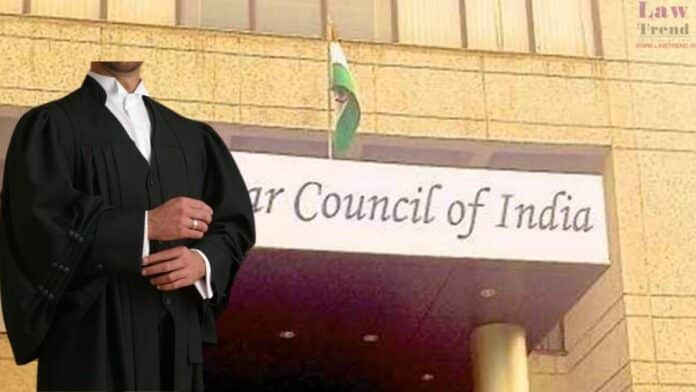The Delhi High Court on Friday sought a response from the Bar Council of India (BCI) on a petition challenging its decision to allow the entry of foreign lawyers and law firms into India.
A bench of Acting Chief Justice Manmohan and Justice Manmeet PS Arora issued a notice to the BCI and the Union Ministries of Law and Justice and Home Affairs on the petition filed by several lawyers.
The court asked the authorities to file their replies within four weeks and listed the matter for further hearing on April 24.
During the hearing, the court sought to know from the BCI’s lawyer as to how the council could get over a 2018 judgment of the Supreme Court in which it was held that foreign law firms or foreign lawyers cannot practice the profession of law in India either in the litigation or in non-litigation side.
Foreign lawyers are permitted to visit India on “fly-in and fly-out” basis which would cover a casual visit not amounting to “practice”, the apex court had said.
In March 2023, the BCI Rules for Registration and Regulation of Foreign Lawyers and Foreign Law Firms in India, 2022 were notified.
The objects of the rules said the opening of the law practice in India for “foreign lawyers in the field of practice of foreign law; diverse international legal issues in non-litigious matters and in international arbitration cases would go a long way in helping legal profession/domain grow in India to the benefit of lawyers in India too”.
The petition filed by advocate Narendra Sharma and seven others has challenged the notification issued by the BCI on March 10, 2023.
According to their plea, the BCI notification allows foreign lawyers to be registered in India and practise law in non-litigious matters, but the BCI does not have the authority or power under the Advocates Act of 1961 to do so.
“Consequently, the impugned notification is ultra vires the provisions of the Advocates Act and against the Supreme Court judgement in Bar Council of India vs AK Balaji and Ors,” it said.
The petitioners said the legal profession has its own dignity and glory in India and cannot be allowed to be taken over by foreign market forces to defeat the ends of justice.
Senior Advocate Rakesh Tiku, appearing for the petitioners, submitted that the BCI in the name of regulation of legal profession cannot go beyond what is permitted by the Advocates Act.
“Foreign firms have been allowed to open law offices. The Advocates Act does not permit it. You may amend the law, but in exercise in the garb of regulation, you cannot do something that the Act does not permit,” he argued.
Advocate Preet Pal Singh, representing the BCI, said that the notification of BCI is clear on what is permitted.
“The practice can only be done by advocates enrolled but foreign law firms can have a limited role and they can come on fly-in and fly-out basis. They will be governed by certain pre-requisite conditions,” he said.
Also Read
The petition said the BCI’s decision was also in violation of the treaty of reciprocation as there is no reciprocity between India and other countries whose law firms will now be able to work in India and this will affect the young lawyers practising in India.
“Several bar associations, NGOs, associations of advocates, group of advocates and individual advocates are opposing opening of field to foreign law firms and foreign lawyers to get the registered under the Advocates Act, 1961 as an Advocate which makes them entitled to even appear in courts, arbitrators, tribunals, quasi-judicial authorities, etc,” the plea said.
It also sought to prohibit the authorities from allowing any foreign law firm or lawyer to open office and practice in India.




